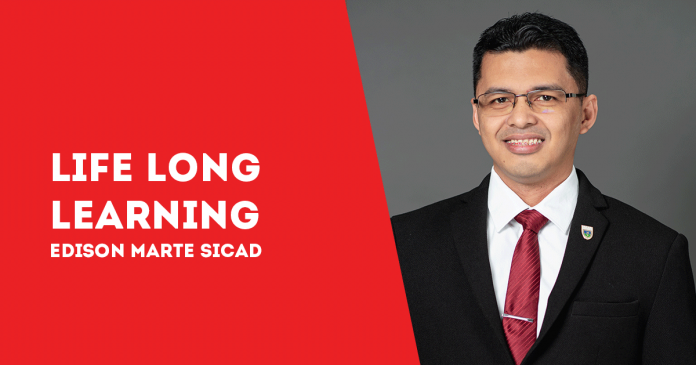
BY EDISON MARTE SICAD
“My friends, you bow to no one.”
— King Aragorn to Frodo, Sam, Merry, and Pippin
Humility as greatness
At the end of the movie trilogy The Lord of the Rings, Aragorn was crowned King of the Reunited Kingdom. As he greeted his constituents, they all bowed to him in reverence. When the hobbits were about to bow, King Aragorn said to them that it should be the men, elves, and dwarves who ought to kneel. So, the four hobbits, only averaging 3 feet in height, stood tallest in Minas Tirith as the King and all the other races knelt down in gratitude for the courage the hobbits had shown.
Frodo and his companions gave up the comfort of the Shire and risked their lives climbing mountains, surviving the Mines of Moria, fighting Orcs, Uruk-hai, a cave troll, among many others — practically facing the wrath of Sauron. And when Frodo and Sam, with some “help” from Gollum, eventually destroyed the One Ring in the fires of Mount Doom, the Dark Lord Sauron had learned a lesson: never underestimate a perceived weakness, for greatness can be found in the most unlikely creatures imaginable, like the hobbits.
And so, Frodo and his companions received the highest recognition from King Aragorn and all the free folks of Middle-Earth; but when they went back to the Shire, their fellow hobbits—who knew nothing of such adventures—treated them in the usual “hobbitual” manner; but they didn’t mind. For humility, in itself, is greatness. And greatness does not seek or need attention.
Great books
To those who wanted to have a worthy reading plan, you may consider the Great Books of the Western World in your list.
The editor-in-chief, Robert Hutchins, has this to say about the books and the authors:
The books contain not merely the tradition, but also the great exponents of the tradition. Their writings are models of the fine and liberal arts. They hold before us what Whitehead called “the habitual vision of greatness.” These books have endured because men in every era have been lifted beyond themselves by the inspiration of their example.
Hutchins would add:
Sir Richard Livingstone said: “We are tied down, all our days and for the greater part of our days, to the commonplace. That is where contact with great thinkers, great literature helps. In their company we are still in the ordinary world, but it is the ordinary world transfigured and seen through the eyes of wisdom and genius. And some of their vision becomes our own.”
Learning then—by reading these books—is a commitment towards greatness. In this case, a greatness in the choice of reading materials. It is in fact a self-education into the great conversations that have stood the test time. It is raising one’s reading habit a notch higher. The act of reading becomes a simple gesture of paying homage to the great minds of the world.
A lesson about the act of reading: it is not about perfection or grand actions. On the contrary, it is finding greatness in the trivial, ordinary, and mundane tasks of daily living. Of recognizing that greatness is in the perception of the person and not in the events in his environment.
Macbeth’s hubris
Hubris: exaggerated pride or self-confidence (Merriam-Webster).
To contextualize, I am referring here to the tendency of man of becoming abusive and self-entitled when he is given more power or has acquired expertise and more experience in a particular field of knowledge. The world is his mirror, and everything is a reflection of his greatness. You have to bow down before him—or else.
But fate has a way of humbling man. In the case of Macbeth, the Three Witches or the Weird Sisters tricked him into success:
FIRST WITCH: All hail, Macbeth! Hail to thee, Thane of Glamis!
SECOND WITCH: All hail, Macbeth! Hail to thee, Thane of Cawdor!
THIRD WITCH: All hail, Macbeth, that shalt be king hereafter!
It then became a conjugal desire for power, which ended in tragedy. His death, a matter of semantics: he cannot be killed by any man born of a woman; but he was killed by Macduff. For Macduff was from his mother’s womb untimely ripped; he was delivered by caesarean section.
IN CONCLUSION, my learnings for the past months were more from my failures. These are mistakes that have embarrassing and ego-shattering consequences. I cannot imagine I would be committing such blunders. But commit them I did. And I am now being humbled. But courage is the other lesson: leading me to a personal worldview; guiding me to see things in a grand manner; and training me to find greatness in ordinary daily tasks./PN







